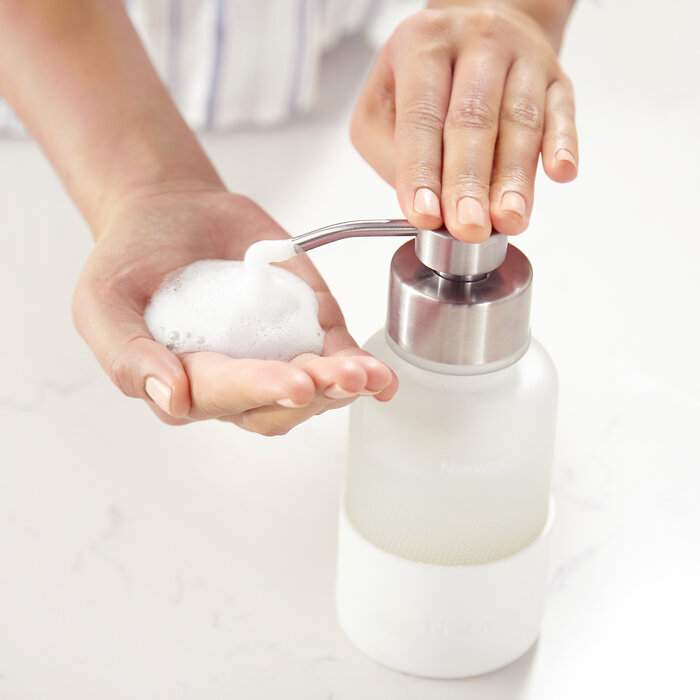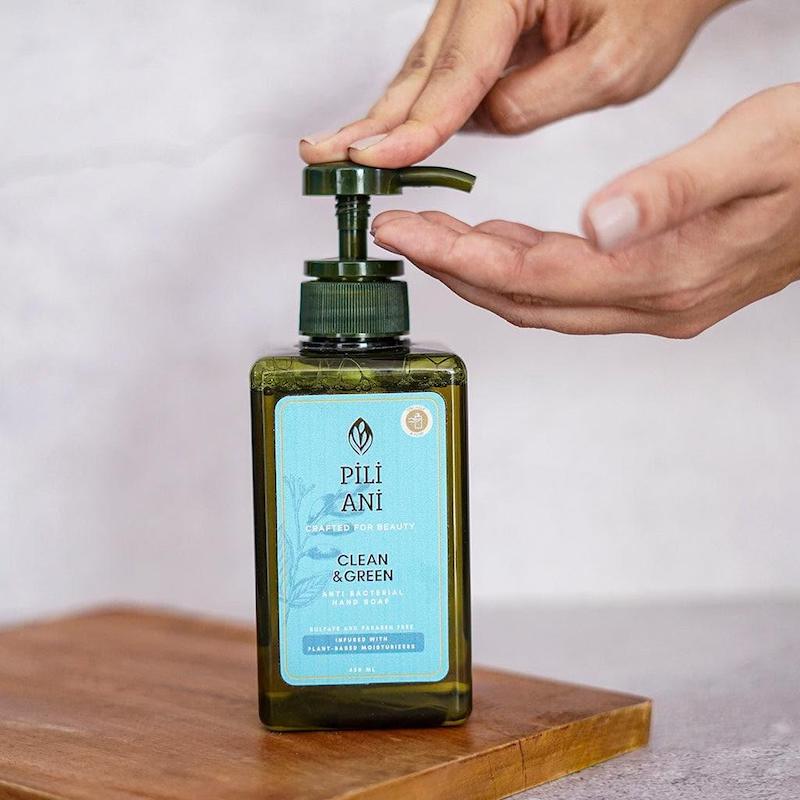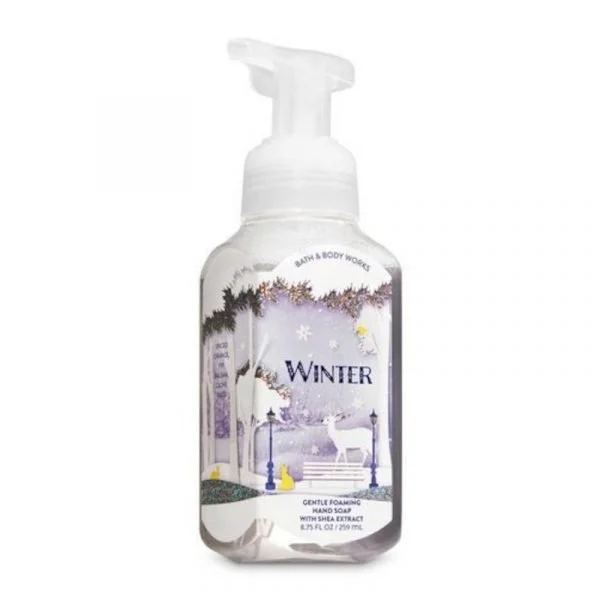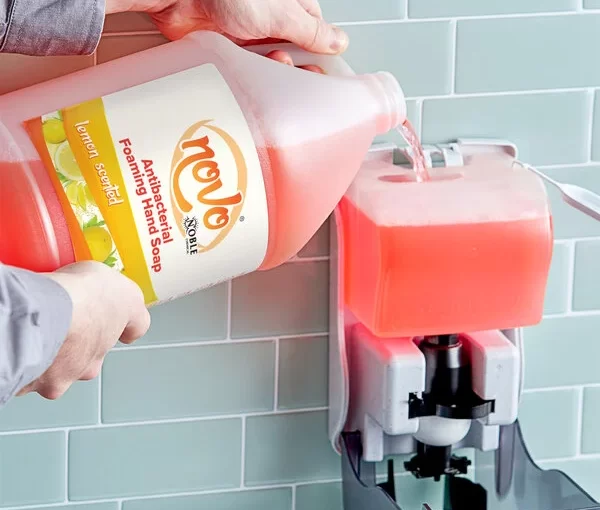The Importance of Using Gentle Hand Soap
Using gentle hand soap is crucial for maintaining healthy skin. Here’s why:
- Protects Skin’s Natural Oils: Regular soaps can be harsh, stripping away natural oils. Gentle hand soaps preserve these essential oils, keeping skin hydrated.
- Prevents Irritation: For those with sensitive skin, gentle hand soaps reduce the risk of irritation. They are free from harsh chemicals that can cause redness or itching.
- Suitable for Frequent Use: With frequent handwashing, especially during flu season, using a gentle hand soap prevents skin from drying out.
- Maintains pH Balance: Gentle hand soaps help balance skin’s pH, avoiding the breeding of harmful bacteria that can lead to infections.
Incorporating gentle hand soap into your daily handwashing routine can make a significant difference in skin health and comfort. For anyone from young children to adults, and especially for those with sensitive skin, the switch to a gentle formula is a critical step towards better skincare.
Key Ingredients to Look for in Gentle Hand Soaps
When shopping for gentle hand soap, it’s essential to know what ingredients to look for. Opt for soaps with components that nourish the skin. Here are some key ingredients:
- Aloe Vera: Aloe vera is known for its soothing properties. It helps moisturize and heal dry or damaged skin.
- Glycerin: Glycerin is a humectant, meaning it draws moisture into the skin. This ingredient can help keep hands soft.
- Vitamin E: Vitamin E is an antioxidant that protects the skin. It can help improve skin’s texture and resilience.
- Chamomile: Known for its calming effects, chamomile can help reduce skin inflammation and irritation.
- Oatmeal: Oatmeal has natural cleansing properties and can gently exfoliate the skin while providing relief from dryness.
- Shea Butter: Shea butter is rich in fatty acids and vitamins. It provides intense hydration and can help restore the skin’s barrier.
Look for these ingredients on the label when choosing gentle hand soap. They can help maintain healthy skin while cleaning effectively.
The Role of Moisturizers in Gentle Hand Soaps
Moisturizers in gentle hand soap play a vital role in skincare. They act to lock in hydration, ensuring that even after cleansing, the skin does not lose its natural moisture. This is particularly important since frequent hand washing can lead to dry and chapped skin. Here’s what moisturizers in gentle hand soaps do for our skin:
- Hydrate the Skin: Moisturizers attract water to the skin’s surface, keeping hands soft and supple.
- Protect the Skin Barrier: By forming a protective layer, moisturizers help to shield the skin from environmental stressors.
- Restore Skin’s Softness: Regular use of moisturizing hand soap can replenish the skin’s natural softness over time.
- Prevent Cracking: Keeping the skin well-hydrated prevents it from becoming too dry, which can lead to cracks and discomfort.
When selecting a gentle hand soap, look for moisturizing ingredients such as hyaluronic acid, ceramides, and natural oils. These ingredients not only cleanse but also provide the much-needed moisture the skin requires, especially after frequent handwashing. By prioritizing hand soaps with effective moisturizers, you can ensure that each wash leaves your hands clean, nourished, and comfortable. The use of gentle hand soap with moisturizers is a simple step you can take to protect your skin’s health every day.
Top Picks: The Best Gentle Hand Soaps on the Market
When it comes to choosing the best gentle hand soap, the options can be overwhelming. However, to make the decision process easier, we’ve researched and identified top picks that stand out for their quality ingredients and skin-friendly formulations. Here are the gentle hand soaps that you should consider:
- Cucumber & Green Tea Hand Soap: This soap combines the hydrating properties of cucumber with the antioxidant benefits of green tea. It is perfect for refreshing and nourishing the skin.
- Lavender & Coconut Milk Soap: Infused with the soothing scent of lavender and the moisturizing richness of coconut milk, this hand soap is a luxurious treat for the skin.
- Unscented Shea Butter Hand Soap: For those with sensitive noses, this unscented option packed with shea butter is an excellent choice for deep hydration without any fragrance.
- Honey & Almond Oil Soap: Honey is a natural humectant, and almond oil is rich in vitamin E. Together, they create a soap that helps to keep hands soft and smooth.
- Olive Oil & Aloe Vera Soap: Recognized for their moisturizing properties, olive oil and aloe vera are combined in this gentle soap to offer a soothing and hydrating wash.
- Tea Tree & Peppermint Soap: Tea tree has antibacterial qualities, while peppermint provides a cooling effect. This combination makes for a refreshing and purifying hand soap.
When selecting a gentle hand soap, always check for ingredients that promote skin health. The above-mentioned soaps are just a few examples that incorporate some of the most beneficial components for maintaining your skin’s natural balance while ensuring effective cleansing. Whether you are looking for fragrance-free, natural ingredients, or a touch of luxury, there is a gentle hand soap out there that will meet your needs.
DIY Recipes: Making Your Own Gentle Hand Soap at Home
Crafting your own gentle hand soap at home is not only fun, but it’s also an excellent way to control the ingredients that touch your skin. With simple recipes, you can create soaps that are both kind to your hands and tailored to your personal preferences. Here are easy-to-follow DIY recipes for making gentle hand soap:
- Basic Unscented Soap:
- Combine one cup of unscented liquid castile soap with three tablespoons of vegetable glycerin.
- Add four tablespoons of distilled water.
- Stir gently and store in a pump bottle.
- Aloe Vera and Olive Oil Soap:
- Mix half a cup of pure aloe vera gel with half a cup of olive oil.
- Blend in one cup of unscented liquid castile soap.
- Pour into your chosen container and use as needed.
- Honey and Almond Oil Soap:
- Start with one cup of mild liquid castile soap.
- Stir in two tablespoons of raw honey and one tablespoon of sweet almond oil.
- Once mixed, transfer to a soap dispenser for regular use.
- Lavender Infused Soap:
- Blend one cup of liquid castile soap with a quarter cup of distilled water.
- Add 20 drops of lavender essential oil for a calming scent.
- Mix well before pouring into a soap dispenser.
By making your own gentle hand soap, you can avoid harsh chemicals and fragrances. Homemade soaps are also a more sustainable choice, reducing plastic waste from store-bought bottles. Begin with these simple recipes and explore adding different natural ingredients like vitamin E, chamomile, or shea butter to suit your skin needs. Remember, gentle hand soap is vital in preserving your skin’s moisture and health.
The Benefits of Gentle Hand Soaps for Sensitive Skin
Gentle hand soaps offer many benefits for those with sensitive skin. Here are the advantages:
- Reduces Reactions: Gentle soaps lower the chance of skin reactions. They avoid ingredients that irritate.
- Keeps Skin Calm: Ingredients like aloe vera and chamomile calm sensitive skin. These prevent common issues like redness.
- Supports Skin Health: These soaps contain skin-friendly additives like glycerin and vitamin E. They promote overall skin health.
- Gentle on Skin: With softening agents, gentle soaps don’t over-strip the skin’s oils. This is especially good for sensitive types.
- Fewer Harsh Chemicals: They typically exclude harsh substances. Fewer chemicals mean a lower risk of adverse reactions.
- Maintains Skin’s Defense: A strong moisture barrier is crucial. Gentle hand soaps help keep this barrier intact.
- Ideal for All Ages: These soaps suit everyone. Children, adults, and the elderly can use them without concern.
Choosing a gentle hand soap can significantly benefit people with sensitive skin. It reduces discomfort, maintains moisture, and supports the skin’s natural barriers without using harsh chemicals. Whether it is for routine handwashing or looking after the delicate skin of children and elderly family members, gentle hand soap remains a preferred choice to ensure skin comfort and health.
How to Choose the Right Gentle Hand Soap for Your Needs
Choosing the right gentle hand soap is essential for your skin’s health and well-being. Here are some tips to help you pick the perfect soap for your needs:
- Consider Your Skin Type: If you have dry or sensitive skin, look for soaps with added moisturizers like glycerin or aloe vera.
- Check the Ingredients List: Avoid soaps with sulfates, parabens, and artificial fragrances that can irritate your skin. Seek out natural and nourishing components instead.
- Look for Skin Benefits: Select soaps that contain ingredients with specific benefits, like chamomile for calming or tea tree for antibacterial properties.
- Think About Frequency of Use: If you wash your hands often, you’ll need a soap that’s extra gentle and hydrating to prevent drying out your skin.
- Opt for Hypoallergenic Options: Those with highly sensitive skin should choose hypoallergenic soaps to minimize the risk of allergic reactions.
- Prioritize Your Preferences: Whether you prefer scented or unscented, liquid or bar, choose a hand soap that matches your personal preference for a more enjoyable handwashing experience.
- Test if Necessary: If possible, test a small amount of the soap on your skin to ensure it does not cause irritation or discomfort before committing to a full purchase.
By following these guidelines, you can find a gentle hand soap that cleanses effectively while being kind to your skin. Keep in mind the importance of reading labels and understanding your skin’s needs to make the best choice for your daily handwashing routine.
The Environmental Impact of Hand Soaps and Eco-Friendly Options
The environmental impact of hand soaps cannot be overlooked. Traditional hand soaps may contain chemicals that harm aquatic life when they go down the drain. Moreover, the plastic packaging contributes to pollution and landfill waste. To address this, eco-friendly options have emerged.
Eco-friendly gentle hand soaps are designed with both the planet and skin health in mind. They often feature biodegradable formulas and come in recyclable or compostable packaging. Here are some considerations for eco-conscious consumers:
- Biodegradable Ingredients: Look for hand soaps with natural ingredients that break down easily in the environment.
- Recyclable Packaging: Choose soaps that come in packaging made from recycled materials or are themselves recyclable.
- Refill Options: Reduce waste by selecting brands that offer refill pouches or stations.
- No Microbeads: Avoid soaps with plastic microbeads, which are harmful to marine life.
- Plant-Based Formulas: Select soaps that are made from renewable resources and are less taxing on ecosystems.
- Cruelty-Free Certification: Ensure that the soap has not been tested on animals, indicating respect for wildlife.
By opting for eco-friendly gentle hand soap, you contribute to a healthier planet. These soaps protect the environment from harsh chemicals and reduce plastic waste. Plus, they are still gentle on the skin and contain moisturizing ingredients. With a shift towards sustainability, you can care for your skin without compromising the world we live in.







